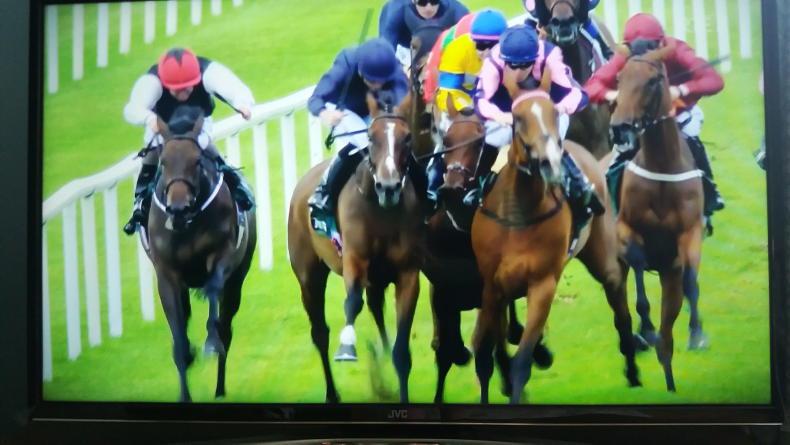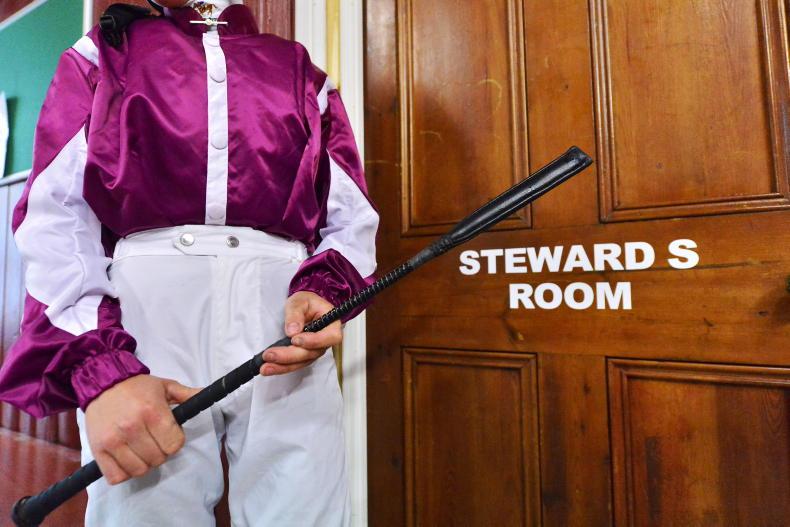ROYAL Ascot had provided much-needed relief from the gloom of the last two years when we had limitations on our freedoms.
This year we had sunshine and perfect going and a huge international presence added to the thrills. Day one lived up to the expectations with Baaeed and Nature Strip strutting their stuff.
By the end of Wednesday we had seen 14 different trainers on the winners’ roll of honour which was also pretty notable. There were plenty of taking points, some fine rides by a variety of jockeys and the starts were proving more controversial than the finishes!
Thursday opened with the Norfolk Stakes. The 50/1 shot The Ridler won it, but not before he had hung, uncorrected by jockey Paul Hanagan, across the track, impeding Crispy Cat and Brave Nation, both of whom were still putting their challenges together. It was lucky no horse clipped heels and fell.
Immediately on viewing the re-run on ITV, jockey Hayley Turner commented: “Paul was in the wrong... he’ll get days but keep the race.”
There we had it, straight from the jockeys’ point of view. Would that be a deterrent to doing same thing again? Especially in an even bigger race?
Paul Hanagan himself said when interviewed on ITV: “I always felt I was clear, I don’t think they have had to stop riding. That’s the impression I got, so I think we’ll be fine.”
The debate and analysis continued - Ruby Walsh knows a thing or two about these situations: “It’s nothing to do with which hand he has his whip in, Paul has no hold of the reins, you see the reins go loose. You don’t steer a horse with the whip, you steer with the reins. Once he takes hold of the right rein again, the horse straighten up again. You have to maintain contact with the reins to steer the horse but he let go of any contact with the horse’s mouth.”
ITV commentator Richard Hoiles widened the argument: “There will be lots of people watching in places like America, France, and scratching their heads saying how has that horse not been DQ’d and placed behind the horses he affected. He should really have been placed fourth.”
Ascot got it right in announcing the ‘no change in the result’ very quickly. That went along with what everyone expected, but that didn’t sit well.
Chief steward
Shaun Parker, the chief steward for the BHA, came on ITV to go through the procedures and interpretation of the current rules.
“Using the normal processes we follow, we did not believe The Ridler improved his placing with the other horses. When we go through the processes we feel that that was a considerable amount of interference in terms of the careless category. We did not believe that, in this instance, it reached the bar for the dangerous riding point of view,” he said.
In later interviews owner of the third, Kia Joorabchian said on ITV: “I don’t really know how you ban a jockey for 10 days, then the stewards said there’s nothing wrong. He did wipe out four horses.”
He had also suggested on Sky Sports Racing that his trainers weren’t big enough names to have the verdicts go in their favour at Royal Ascot which is not what you want to hear being suggested.
But that’s the thing with having big international owners, competing all over the world. You have to have similar rules all round or they get very annoyed.
Jim McGrath on Sky played by the current rules but was on his own: It was the “high end of careless – five to seven days. Has he improved his position relative to the horses in the field? No, it’s not close.”
Having former jockey Freddie Tylicki, so badly injured in a fall on the track, on Sky might have been a key contributor on this. “Allowing his horse to drift over, he should have put his hands down and pulled his stick through to correct that horse – on to his racing line. Riding like that just shouldn’t be happening.”
Carelessness
On the same channel, Kevin Blake summed up the current state of play in two words. “Casual carelessness.” That is what has been encouraged, even condoned.
“There’ll be people looking at this in Hong Kong and Australia and thinking what is going on here. This is such a high-risk dangerous sport … you shouldn’t be riding like that. It falls so far below the level of what a senior jockey like Paul Hanagan should be doing and the fact that he was happy to continue using his stick in his right hand there, that’s indicative of the stewarding and the way the rules are enforced here. He felt enabled enough to keep whacking away and causing severe interference.” Blake said it all.
There has been unease now for a long time on the current rules. It cannot be good that so many international owners turn up at Royal Ascot – which is the big draw – yet race under rules that are so different than in Australia, America and Hong Kong.
Check out last year’s Haskell Stakes in the US – Hot Rod Charlie crossed the finish line first at the Haskell Stakes, but Mandaloun was declared the winner after Hot Rod Charlie was disqualified for drifting and impeding Midnight Bourbon’s path. The winner was instantly disqualified.
In Australia in July last summer, star jockey Hugh Bowman is banned for six weeks after he made a manoeuvre that that saw a horse put down and a jockey seriously injured. More recently this season, jockey Nash Rawiller was suspended for almost a month, on a careless riding charge aboard Kementari going into a tight gap on the rail.
Classic example
What Hanagan did was the classic example, on the biggest stage, of making no effort to correct a hanging horse, even continuing to hit it as it drifted away, when he knew there would be little sanction.
Some suggested if the winner had been the favourite, there might have been less of an outcry. Perhaps if the jockey had been Irad Ortiz, there would have been more? The current rules offer a high bar to reach the dangerous riding category, which would mean disqualification. The point that the second Walbank did not deserve to win the race as he was not interfered with is in contradiction to a similar verdict where Potterman got the 2021 Bet 365 Gold Cup at Sandown in the stewards’ room, despite not suffering interference.
How much of an outcry would there have been if The Ridler had been placed fourth?
Very little, I’d offer.
But at the end of the day, when virtually every pundit, many of them former jockeys, did not agree with the leaving the result as it was on Thursday, it’s surely time to look again at those rules.


 This is a subscriber-only article
This is a subscriber-only article
 It looks like you're browsing in private mode
It looks like you're browsing in private mode











SHARING OPTIONS: